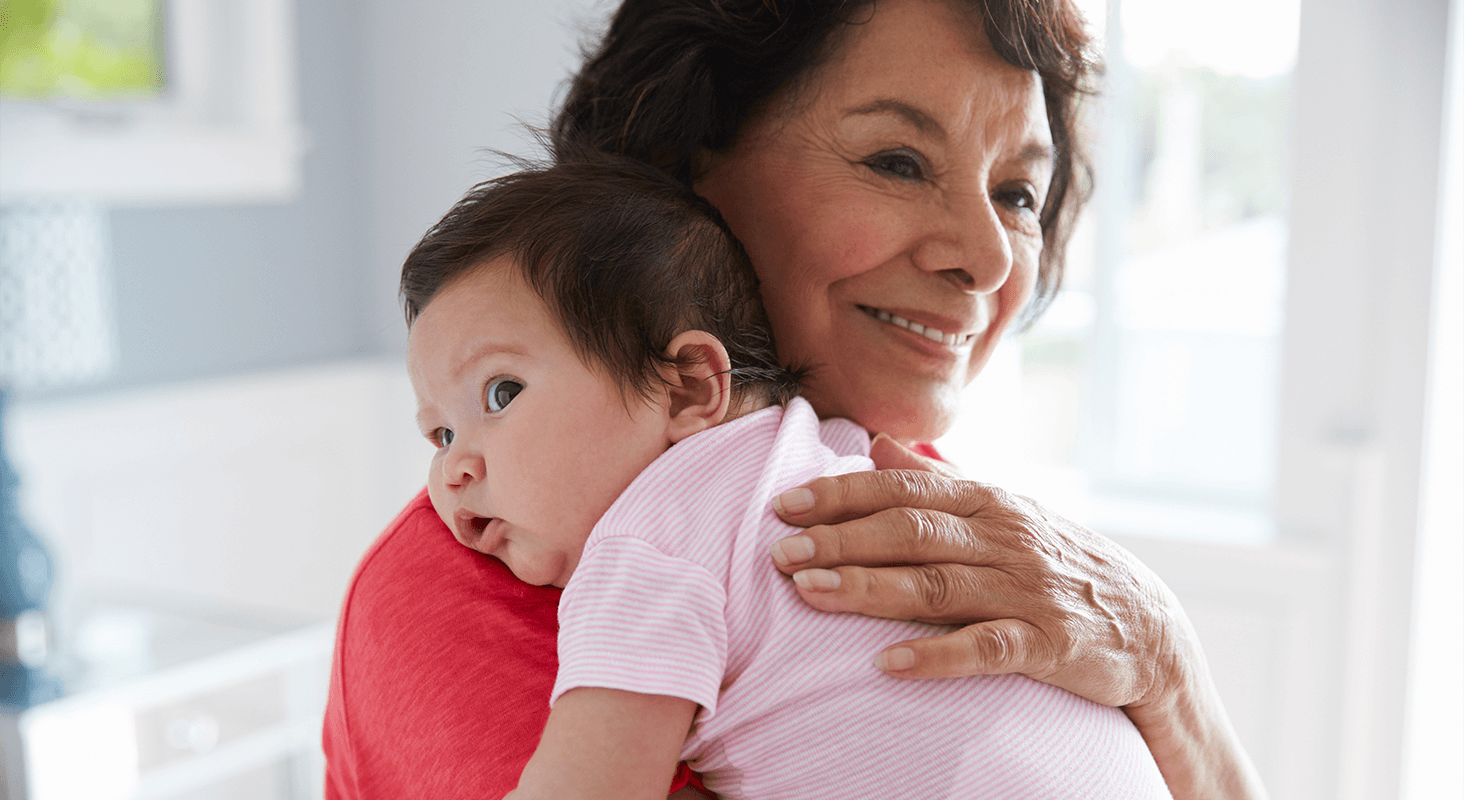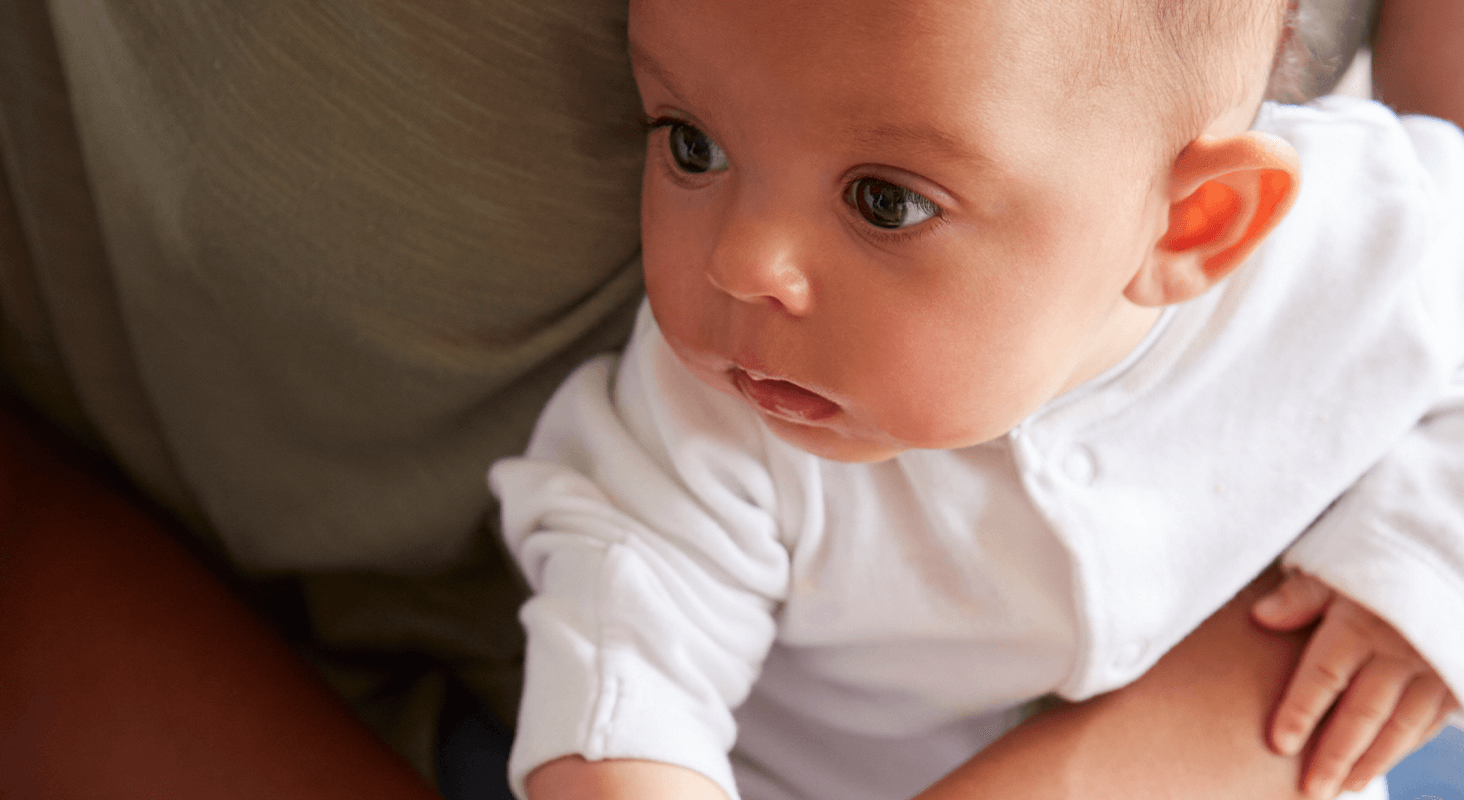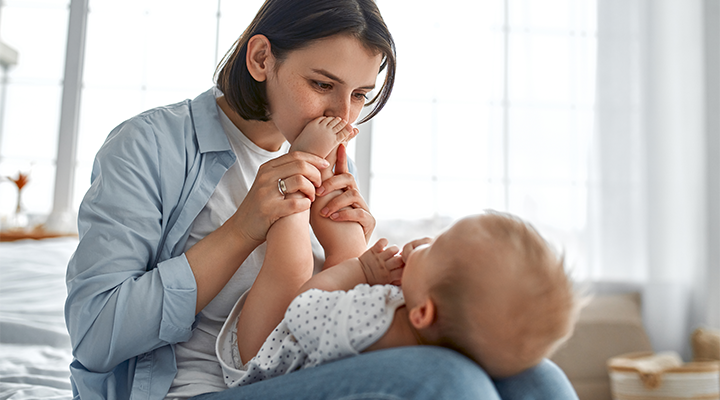Choosing Child Care
It can be difficult to leave your baby to go back to work. Here are some tips for finding a safe and happy place or person to care for your baby when you’re away.

First Thing First
This transition often comes with a lot of questions and often a lot of worries. It's helpful to keep in mind that you are not alone. So many mothers and fathers return to work after their babies are born.
And remember, the transition back to work will be harder on you than on your baby. Your baby is not worried about this. They know you will choose the best child care option for them, and they will be happy there! And, at the end of each day, they will always have your loving arms to come home to and continue that secure and comforting attachment.
 TIP FOR PARENTS
TIP FOR PARENTS
Trust your gut. If you are concerned about leaving your baby with a person their ability to make a warm, nurturing, stimulating environment for your baby, look for another caregiver.
How do I choose child care for my baby?
There are so many child care options to choose from— using family members or friends, hiring a nanny or au pair, taking them to an in-home family child care, or signing them up to attend a regular day care center. You get to determine what's best for your family and for your baby.
FAMILY AND FRIENDS
Since you're already very familiar with your family and friends, you may feel the most confident having them care for your baby. But you should feel comfortable asking questions to be sure that your baby has the best of care with your friend or family member.
NANNIES AND AU PAIRS
If you prefer to keep your baby at home, a nanny, or au pair may be your answer. Nannies can be recommended by other moms in your community or found in local listings and placement agencies, including university job boards. This is usually the most expensive option. Au pairs come from other countries and are recruited and screened to live with a host family to provide childcare and, sometimes, housework. You can contact au pair agencies near you to choose an au pair from a country of your choice.
Whether a family member, nanny or au pair will be taking care of your baby, you'll want to consider the potential caregiver's past experience with babies, early childhood and CPR training, caregiving style, reliability, character, and disposition. These are all important in finding the right match for your family. For nannies and au pairs, also ask about the length of time they worked with other families, including ages of children they served, and make sure to talk with their references.
DAY CARE CENTERS AND IN-HOME DAYCARES
Some families prefer that their baby spend time with other babies, or they cannot afford a nanny/au pair or don't have family nearby who can help. In this case, day care centers and family child care homes are good options. Whether you choose an in-home day care or a traditional day care center, a personal visit (without your infant) might be the best way to see the caregivers in action to know if it is the right place for your baby. Schedule a visit that allows you to be there at drop-off time on one day and stay part of the morning. You can return another day just as nap time is ending to see this important transition. You can always visit again to observe pickup time or any other part of the day you're interested in observing.

How do I choose child care for my baby?
Take along these questions and a notepad to write down what you notice. And don’t be afraid to ask questions. Here are some things to look for or ask about during your visit:
- Is the home or center licensed? This will ensure that minimum standard regulations for health and safety are being followed. For higher standards of excellence, search for a home or center that has been accredited by the National Association for the Education of Young Children (NAEYC).
- Are there regularly scheduled times for caregivers to plan and reflect on their work together? Are there opportunities for caregivers to receive ongoing training related to their work with children?
- Do you hear and observe caregivers interacting with children and each other in calm, gentle tones? Do they have positive relationships with the infants, with each other, and enjoy their interactions with the infants? How do they address children’s needs and respond to their cues?
- Do caregivers follow predictable routines that help children know what to expect and talk or sing them through transitions such as diapering, feeding, nap time, drop-off, and pickup to support them and offer reassurance?
- Are caregivers loving and affectionate with the babies? Do they have mini conversations with the infants, narrating their actions, talking about what babies are noticing and doing? Do they spend time singing with children and sharing books every day?
- Is one caregiver considered the primary caregiver for each child? Is there continuity of care, where infants remain with the same caregiver for more than one year?
- Is the home or classroom clean, uncluttered, and well-supplied with interesting materials for the babies to explore, including lots of board books within their reach?
- How do the caregivers communicate and share information with parents? How often? While these things are important considerations to keep in mind, remember that if you feel good about the day care and can imagine your child enjoying their time there, there’s a good chance you may just have found the right fit for your family!
Additional Reading
Bilingualism
Get answers to some of the most common questions you may have as a new parent.
Cultural Heritage & Identity
Your baby’s social environment is just as important as their physical environment.
Crying
Understand why babies cry, how you can soothe them, and when to call for extra help.
